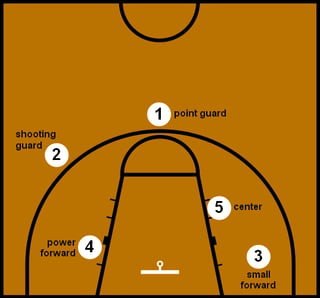Going Hard in the Paint
Agents and managers use Eleven to call plays on the fly and put points on the board for the entire team.
Imagine the traditional talent supply chain in terms of a basketball team. There are more players, but for now, let’s talk about agents and managers, or shooting and point guards, respectively.

Everyone is on the same team and has their own position, but their collective objective is to “score” with a deal for the client. While some players may have a set position, there are no set “shooting only” or “assist only” positions – whatever happens, happens. Just ask James Harden

Every team, be it basketball or talent, has its own dynamics and styles of play; regardless, everyone plays their position. While a manager can make some moves as far as building relationships, sometimes the actual deal might have to go through an agent. Notice how the roles and actual tasks performed are very similar, yet the functions in the supply chain remain in tact, similar to a point guard and a shooting guard.
Shooting Guards = Agents
The shooting guard is the player who takes the most shots.
The agent is the person who lands most of the work for a client. Basically, they’re the top scorer of the talent team.
"He needs to be an accurate shooter from three-point range."
The agent must have a long range of connections to make in order to “shoot the 3’, which means they have the ability to galvanize parties with which they work in order to make something happen.
For example, if a creator wants to produce a show, the agency has contacts with production companies, writers, and more to coordinate the entire thing. That “long range” of contacts and clients puts them in a position to make the impossible shot from half court look easy.
"However, he has to be good at dribbling fast, passing and having court vision by seeing the court."
This is important: The agent has to have the same skills as the rest of the team, be able to think quickly, and react on his feet.
That “court vision” is just strategy – they set plays on the fly and think about how they can most effectively make money for their team.
"He is responsible for bringing the ball down the court and setting up offensive plays."
Once the agent sees the play, all they have to do is get in position to execute. Because the rest of the team is privy to what’s going on, they can each play their part to make the play happen.
Point Guards = Managers
“The point guard needs to be the best ball handler, dribbler, and passer, as he handles the ball the most out of all the players on the team.”
The manager’s job is to handle the client’s day-to-day business affairs. They’re the ones who know the client; they’re the one with the ball...I mean talent! They know the ins and outs of their daily life, and have a firm grasp on their career goals and interests. This allows them to better serve the team when it comes to strategizing selling inventory for their rosters.
"He needs to bring the ball down the court and initiate offensive plays."
Once they manager see the plays, they often hand it off to the agent, similar to an assist...and similar to Chris Paul.
Even if it’s a clear shot, it’s in the best interest of the team to work in together to make magic happen. It’s the difference between a simple layup and an alley-oop slam dunk.
"Point guards can also be the shortest player on the team as they use their intelligence and court vision to coordinate all his teammates on offense."
This is where those handles come in handy – the close relationship between the manager and the talent allows the entire team to be aware of the everyday activities. The manager might rub elbows with someone on Tuesday, pass it to the agent, and close the deal.
"Point guards need to have a good long distance shooting, though it's not quite as crucial as for shooting guards. However, some take as many shots as SG's.
Watch how awesome Chris Paul is at passing the ball and how he’s still able to make those quick decisions. That’s the same as managers. Because they’re on the ground and seeing the daily aspects of their talent, they can make moves that an agent may not be agile enough to pull off. Now, depending on local laws, some managers cannot procure work for their clients. If you’re a manager, the shots are open, and your team doesn't mind, go ahead and take the shot!
To see how this plays out in the Eleven system, check out our blog on how agents and managers use Eleven.
AND NOW: Something to ease the load of this wall of text.
Posts by Topic
- Branded Entertainment (9)
- Branded Content (6)
- Influencer Marketplaces (4)
- media planning (4)
- Ad tech (3)
- Programmatic Advertising (3)
- Use Cases (3)
- ad networks (3)
- media buying (3)
- Capabilities (2)
- DMP (2)
- Eleven Academy (2)
- Premium Content (2)
- programmatic influencer marketing (2)
- 100% Opt-In (1)
- American Gods (1)
- Cost Per View (1)
- Creators (1)
- DSP (1)
- Digital Talent (1)
- Eleven Digital (1)
- Entertainment (1)
- Heineken (1)
- Influencers (1)
- Methodology (1)
- Music (1)
- SSP (1)
- Talent Agent (1)
- Talent Manager (1)
- Vendors (1)
- advertising (1)
- brand safety (1)
- culture (1)
- diversity in advertsing and entertainment (1)
- eleven vs influencer marketplaces (1)
- influencer marketing (1)
- prospecting (1)
- retartgeting (1)



.png)